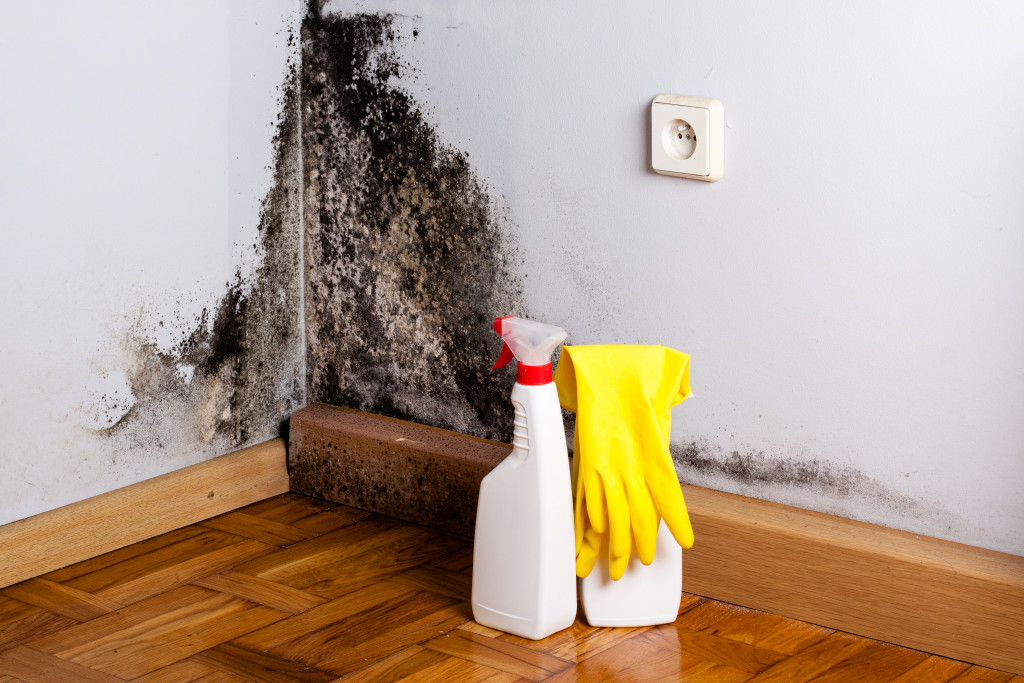• High humidity levels can cause excess moisture in homes, air leaks, leaking pipes or appliances, and poor ventilation.
• To prevent moisture buildup in your home, seal any potential air leaks and ensure all appliances are installed correctly and regularly maintained.
• Make sure to have adequate ventilation by installing exhaust fans that vent outside and opening windows to allow fresh air circulation.
• When renovating your home, focus on the roof, wall insulation, and ventilation to make it more resistant to moisture.
• Additionally, pay attention to indoor plants that require frequent watering to avoid over-watering them and increasing humidity levels.
Too much moisture in your home can lead to mold, mildew, and other health issues. It can also damage the structural integrity of your home and make it less energy-efficient. So, what causes this moisture in your home? Here are some of the most common causes of excess moisture in homes—and how to prevent them.
Humidity Levels
Humidity is simply the amount of water vapor in the air. When humidity levels are too high, it leads to a buildup of condensation on windows, walls, and other surfaces. This moisture can cause mold growth if not taken care of quickly. Here are some reasons why humidity increases inside your home:
Air Leaks
One of the most frequent causes of excess moisture in your home is air leaks. Air leaks occur when air from outside enters through cracks or gaps around windows, doors, and other openings in the walls. If these leaks persist long enough, they can cause a buildup of moisture inside the home due to increased temperature and humidity. The best way to prevent this is by sealing any potential leaks as soon as possible to keep the exterior air out.
Leaking Pipes and Appliances
Another common cause of excess moisture in homes is leaking pipes or appliances. Leaks can occur due to age or due to improper installation or maintenance. If you suspect a leak somewhere in your home, contact a professional plumber immediately before the problem worsens. Additionally, ensure all appliances are installed correctly and regularly maintained for any issues.

Poor Ventilation
Poor ventilation can also lead to moisture accumulation in your home. Without proper ventilation, moist air will become trapped inside your house—leading to condensation on walls and windows and encouraging mold growth. Ensure your home has adequate ventilation by ensuring exhaust fans are vented outside (not just into an attic or crawl space). You should also open windows for fresh air circulation throughout the day.
Indoor Plants
Indoor plants are not only aesthetically pleasing but also help purify the air we breathe in our homes; however, they can also contribute to higher moisture levels if not monitored closely enough. Certain plants require more water than others, so try to keep an eye on how often you need to water each one to avoid over-watering them, which could lead to an increase in humidity levels inside your home.
Tips For Renovating Your Home to Reduce Moisture
As you can see, many potential causes of excess moisture in homes exist. By understanding what these causes are and how they contribute to increased moisture levels in your home, you can take proactive steps toward preventing them from happening in the first place! One of those proactive steps is renovating your home to be resistant to moisture. Here are some tips for doing that.
Roof
The roof is one of the essential parts of your home you should focus on when renovating to reduce moisture. It can be challenging to keep humidity levels under control if you have an old or damaged roof. Consider replacing your existing roof with a newer one that is better insulated and more resistant to water damage. Hire a roof installation service for this. They can help you select the best materials and also ensure proper installation.

Wall Insulation
Another vital part of a home that should get attention regarding moisture resistance is wall insulation. If your walls are not properly insulated, they can be vulnerable to condensation and water damage. So, consider replacing or adding more insulation to your walls, especially in areas prone to moisture buildup.
Ventilation
Finally, remember to focus on ventilation when renovating your home and making it more resistant to moisture. Ensure all exhaust fans are vented outside, not just into an attic or crawl space. Open windows throughout the day to allow fresh air circulation in the house, and install window screens to keep the bugs out.
Overall, moisture can cause severe damage to your home and can lead to health issues for those living inside it. However, by understanding what causes excess moisture in homes and taking proactive steps toward preventing it, you can reduce the risk of potential problems down the line!
